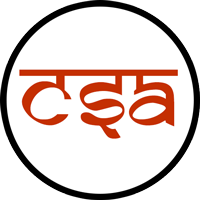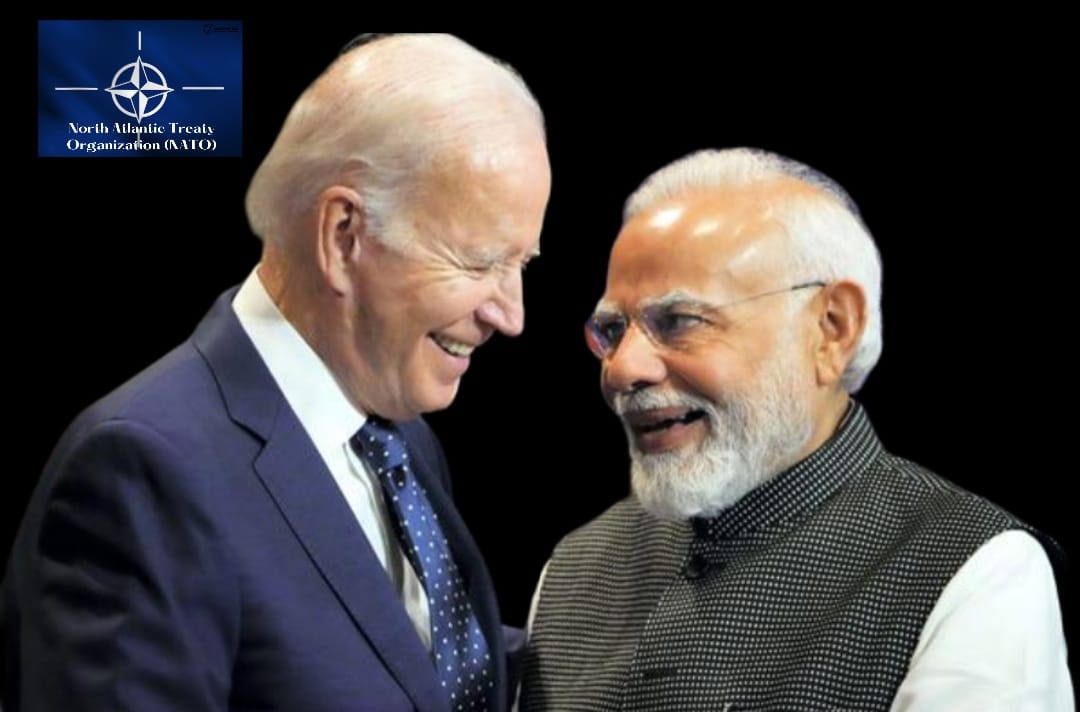By Nakshatra Jagannath & Dr. A Adityanjee
Background
Ahead of Prime Minister Narendra Modi’s formal state visit to the United States, a US Congressional Committee on China has recommended inclusion of India in the NATO Plus-five mechanism. This move hopes to transform the mechanism into NATO plus-six if India were to accept a formal offer. The objective is to further strengthen the US-led military alliance in a strong bid to contain China especially with a war over Taiwan looming over the horizon. This development has been touted as a measure of personal influence and achievement by some loquacious Indian American groups that claim to influence the US policy on India. Somehow, the recommendation instantly started being vigorously echoed in geopolitical and other echo-chambers. The putative offer also comes at a time when the world is in a geo-political crisis that can be best termed as a burgeoning global disorder.
Before delving deep into analyzing the rationality of the offer, a brief background of NATO (North Atlantic Treaty Organization) is imperative for better clarity and enhanced understanding. NATO as a military alliance was formed in 1949. There were only 12 founding member states that are primarily located in the North Atlantic Region. There has been aggressive eastward expansion of NATO since the fall of the Soviet Union despite numerous assurances to the contrary. This did cause extreme consternation in Russia when Ukraine became a candidate for NATO membership. It now comprises of 31 members: the latest entrants being Finland and Sweden. Ukraine is still waiting to be admitted to NATO.
The original purpose of the alliance was to protect its European members against military threats collectively from the erstwhile Soviet Union, promote peace, and cooperation in Europe. Lord Hastings Ismay, NATO’s first Secretary General, said NATO’s purpose was “to keep the Soviet Union out, the Americans in, and the Germans down”. NATO also committed the member states to ‘collective defense’ which under Article 5 of the treaty, explicitly states that if any member state is under armed attack, every other member state will consider it as an armed attack against all members, thereby initiating collective military action against the aggressor. In recent years, NATO has exceeded its original brief and has undertaken activities outside Europe, mainly in Afghanistan, Libya and Syria beyond its charter.
The NATO plus five mechanism, started in 2000, collaborates with 5 other partner states, namely: Australia, Israel, Japan, New Zealand, and South Korea that are not formal NATO treaty allies. This mechanism does not legally bind the partners to article 5 of the NATO treaty as these are not NATO members. There is no mutual defense guarantee or commitment but collaboration on security, intelligence sharing and other issues. However, all these five states have either bilateral or multilateral security guarantees from the US. All five of them benefit from the extended deterrence under the US nuclear umbrella.
US Perspective:
NATO now seeks to extend its influence, by offering a NATO plus-six mechanism to India, ostensibly to deal with the China threat in the Indo-Pacific region but primarily affecting Taiwan. Besides containing China, the American perspective is to further strengthen the strategic relationship between US and India. If India were to become US strategic ally, it will neutralize India’s long standing strategic relationship with Russia. It is important to note that the offer was not officially made, it was a mere congressional committee recommendation. US would like India to be a military ally which India so far has steadfastly refused. Despite obvious differences with India on Russia during the Russia-Ukraine War, the US wants to leave no stone unturned to make India follow the US policy of backing up Ukraine and supporting sanctions on Russia. However, US establishment fails to realize that India has historically followed an independent foreign policy.
The Indian Perspective
India- is emerging as a regional power, and a net security provider in the Indian ocean region. Unlike China, India is not chasing the superpower dream despite talk about being a Vishwa Guru. Everybody wants India in their camp, the US being no exception. India places her national interests first and accords them with paramount importance. This was again reiterated by the External Affairs Minister of India – Dr. S. Jaishankar when posed with a question regarding oil purchases from Russia to meet energy demands in India in the midst of sanctions on Russia and backlash emanating from Washington, DC. However, when it comes to foreign policy, one must always be flexible and pragmatic, for the global order is under constant change.
Therefore, both the advantages and disadvantages of NATO plus offer must be evaluated. If India is to accept the offer, it will result in seamless access to latest American and NATO defense technology and equipment. India will also be able to share top-secret US intelligence just like other NATO plus five partners. India may also get NATO military support in case of a future war with China if India were US partner.
There are more disadvantages that will hobble India the moment she accepts the so-called offer. It will spell doom for the historic strategic ties with Russia. That country also happens to be India’s largest defense supplier even now despite attempts by India to diversify procurement of weapons. Approximately 70% of Indian armament is of Russian origin and cannot be replaced immediately. Geographically speaking, India is nowhere close to the North Atlantic Region. India has Communist China to deal with on her northern land border. India joining NATO plus-six mechanism will certainly rattle China and will create more instability on the line of control, Therefore, the proposed partnership does not suit Indian interests in geographic sense too. India is capable of handling and combating the threat from China, independently.
Even if India were to accept the NATO plus-six mechanism, it will undermine India’s strategic independence. Unlike Pakistan, India had refused to join US led military blocks in Asia viz. CENTO and SEATO after independence. In the recent times India has already moved away from the utopian concept of non-alignment to ‘multi alignment’ which refers to maintaining good diplomatic relations with multiple states across the globe. India firmly believes that international relations are not zero-sum game. A recent example is India’s neutral stand on the Russia-Ukraine war. India has placed national interests as a priority without bowing down to western policies and pressure despite having good relations with the US.
With India accepting this NATO plus offer, India’s membership in BRICS, SCO, RIC and other forums will be untenable. There is also a possibility of India getting sucked into newer European conflicts. India will not be treaty ally under the article five, but the expectation would be to support future NATO missions with Indian troops and military equipment just like Australia does. Joining the NATO plus-six mechanism will be a constant hindrance to India’s own strategic priorities. Moreover, Indian soil, will have to welcome the establishment of US or NATO military bases which will aim to counter China. Such a move will severely undermine Indian sovereignty and may lead to a phenomenon that India has never witnessed before- hosting foreign military bases on its soil. India may be forced to kowtow to the US, EU, and NATO pressure on joining the NPT and the CTBT both of which India finds discriminatory.
Nakshatra Jagannath
CSA Training Fellow at the Council for Strategic Affairs. He is based in Kolkata, India.
Dr. A Adityanjee
President of the Council for Strategic Affairs. He is based in Cleveland, OH, USA.
Conclusion
The disadvantages to India clearly outweigh the advantages of the NATO plus-six offer. It is apparent that India joining the NATO plus-six mechanism is more in the US’s security interests. It also helps political interest of some Indian American political hacks, arm sellers and their lobbyists. The so-called offer has very little strategic relevance to India and her security concerns, at least for now. That is why it was summarily rejected by the Indian External Affairs Minister. As opposed to what is being shouted in the echo-chambers, this rejection of the offer, will not have any detrimental effect on India-US bilateral relationship which is more mature now. The US government has realized that India is committed to an independent and national-interest centric foreign policy. Kurt Campbell, the White House Indo-pacific coordinator has already acknowledged that India will not be a US ally but will be a great power. India must continue her independent foreign policy, maintain strategic independence and use her soft power, hard power and the smart power- as she deems necessary.




This article represents too elevated a view of Indian policies by Indian authors. For instance, buying oil from Russia must not be seen as the elevated manifestation of India’s “strategic autonomy”, at its core, it is nothing more than mercantile decision by India to buy discounted oil from a beleaguered country, Russia. Indian analysts must realize that India has been independent for nearly a century now but despite its size and population no major country takes it seriously. The offer of NATO + six, at its best, must be seen as the West taking the liberty of making condescending gesture towards India. When they formed UNSC Five plus One team in 2015 to talk to Iran on JCPOA, the Plus One slot was given to Germany, not India. To see India as the net provider of security in the Indian Ocean region is nothing more than a self-flattering view of oneself. If anything, India simply has been the South Asian bully against its smaller neighbors, and ruined Sri Lanka, and regularly blockaded Nepal are two such instances. By writing this article, the authors are doing only disservice to their own homeland, because those self-indulgent guys in Delhi are sure to take it as endorsement of their policies that is doing lot of harm domestically and doing nothing to enhance its standing at world stage.